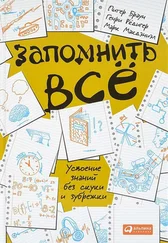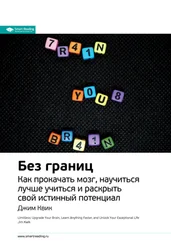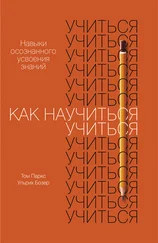Jairam, Dharma, and Kenneth A. Kiewra. «An Investigation of the SOAR Study Method.» Journal of Advanced Academics 20, no. 4 (2009): 602–629.
Kitsantas, Anastasia, Adam Winsler, and Faye Huie. «Self-Regulation and Ability Predictors of Academic Success during College: A Predictive Validity Study.» Journal of Advanced Academics 20, no. 1 (2008): 42–68.
Kramarski, Bracha. «Promoting Teachers' Algebraic Reasoning and Self-Regulation with Metacognitive Guidance.» Metacognition and Learning 3, no. 2 (2008): 83.
Kramarski, Bracha, and Tali Revach. «The Challenge of Self-Regulated Learning in Mathematics Teachers' Professional Training.» Educational Studies in Mathematics 72, no. 3 (2009): 379–399.
Murnane, Richard J., and Frank Levy. Teaching the New Basic Skills: Principles for Educating Children to Thrive in a Changing Economy. New York: Free Press, 1996.
Plant, E. Ashby, K. Anders Ericsson, Len Hill, and Kia Asberg. «Why Study Time Does Not Predict Grade Point Average Across College Students: Implications of Deliberate Practice for Academic Performance.» Contemporary Educational Psychology 30, no. 1 (2005): 96–116.
Yan, Veronica. Learning Concepts and Categories from Examples: How Learners' Beliefs Match and Mismatch the Empirical Evidence . University of California, Los Angeles: Pro Quest Dissertations Publishing, 2014.
Zimmerman, Barry J. «Self-Regulated Learning, an Overview.» Educational Psychologist 25, no. 1 (1990): 3–17.
1. Aaron C. Kay et al., «Material Priming: The Influence of Mundane Physical Objects on Situational Construal and Competitive Behavioral Choice», Organizational Behavior and Human Decision Processes 95, no. 1 (2004): 83–96.
2. Chris S. Hulleman and Judith M. Harackiewicz, «Making Education Relevant: Increasing Interest and Performance in High School Science Classes», Science 326, no. 598 (2009): 1410–1412. Также см.: Judith M. Harackiewicz et al., «Helping Parents to Motivate Adolescents in Mathematics and Science: An Experimental Test of a Utility-Value Intervention», Psychological Science 28, no. 8 (2012): 899–906.
3. Ryan Mac, David M. Ewalt, and Max Jedeur-Palmgren, «Inside the Post-Minecraft Life of Billionaire Gamer God Markus Persson», Forbes (March 2015), http://www.forbes.com/sites/ryanmac/2015/03/03/minecraft-markus-persson-life-after-microsoft-sale/(дата обращения: 27.10.2016); Tracy McVeigh, «Minecraft: How a Game with No Rules Changed the Rules of the Game Forever», Guardian , November 16, 2013, http://www.theguardian.com/technology/2013/nov/16/minecraft-game-no-rules-changed-gaming; и Nick Statt, «Markus 'Notch' Persson: The Mind behind Minecraft (Q&A)», CNET (November 2013), https://www.cnet.com/news/markus-notch-persson-the-mind-behind-minecraft-q-a/(дата обращения: 27.10.2016). Цитата из биографов — из статьи в Guardian . Цитата из Перссона — по статье из CNET.
4. Clive Thompson, «The Sims: Suburban Rhapsody», Psychology Today (November 2003), http://www.psychologytoday.com/articles/200311/the-sims-suburban-rhapsody(дата обращения: 27.10.2016).
5. Tom Rath, Are You Fully Charged? The 3 Keys to Energizing Your Work and Life, Kindle edition (Arlington, VA: Mission Day LLC, 2015). Цитаты из Вржесневски и высказывания уборщиков даны по: David Zax, «Want to Be Happier at Work? Learn How from These 'Job Crafters,'» Fast Company , June 3, 2013, https://www.fastcompany.com/3011081/innovation-agents/want-to-be-happier-at-work-learn-how-from-these-job-crafters(дата обращения: 18.09.2016).
6. Amy Wrzesniewski, Justin M. Berg, and Justin Dutton, «Managing Yourself: Turn the Job You Have into the Job You Want», Harvard Business Review, June 1, 2010, https://hbr.org/2010/06/managing-yourself-turn-the-job-you-have-into-the-job-you-want(дата обращения: 18.09.2016). Также см.: Lora Kolodny, «The Latest Approach to Employee Training», Wall Street Journal, March 14, 2016, Business section, http://www.wsj.com/articles/the-latest-approach-to-employee-training-1457921560?tesla=y.
7. Erika A. Patall, Harris Cooper, and Susan R. Wynn, «The Effectiveness and Relative Importance of Choice in the Classroom», Journal of Educational Psychology 102, no. 4 (2010): 896. Обратите внимание, что слишком широкий выбор, особенно на ранних стадиях процесса обучения, дает ограниченные результаты, см.: Richard E. Clark, Paul A. Kirschner, and John Sweller, «Putting Students on the Path to Learning: The Case for Fully Guided Instruction», American Educator (Spring 2012): 7–11.
8. Пионером работ о поиске был Яак Панксепп. Цитата из него дана по: Emily Yoffe, «Seeking», Slate ( August 12, 2009), http://www.slate.com/articles/health_and_science/science/2009/08/seeking.html(дата обращения: 18.09.2016).
9. Kenneth E. Barron and Chris S. Hulleman, «Is There a Formula to Help Understand and Improve Student Motivation?» Essays from Excellence in Teaching 8 (2006), на сайте Society for the Teaching of Psychology, http://list.kennesaw.edu/archives/psychteacher.html(дата обращения: 07.08.2006).
10. Suzanne Hidi and K. Ann Renninger, «The Four-Phase Model of Interest Development», Educational Psychologist 41, no. 2 (2006): 111–127.
11. Информация о программе Posse, взята из разных источников, в том числе: Adam Bryant, «Deborah Bial of the Posse Foundation: Success Isn't Always about You», New York Times , October 4, 2014, http://www.nytimes.com/2014/10/05/business/deborah-bial-of-the-posse-foundation-success-isnt-always-about-you.html(дата обращения: 13.09.2016).
12. «Quick Facts», The Posse Foundation, http://www.possefoundation.org/quick-facts(дата обращения: 13.09.2016).
13. David Figlio, «Names, Expectations, and the Black-White Test Score Gap», no. 11195, National Bureau of Economic Research (March 2005).
14. Более подробно о влиянии социальных связей на обучение: C. Kirabo Jackson, «Can Higher-Achieving Peers Explain the Benefits to Attending Selective Schools? Evidence from Trinidad and Tobago», Journal of Public Economics Elsevier 108 (December 2013): 63–77. Также см.: «The Friends Factor: How Students' Social Networks Affect Their Academic Achievement and Well-Being», National Bureau of Economic Research (NBER) Working Paper no. 18430 (October 2012) и «The Effect of Social Networks on Students' Academic and Non-Cognitive Behavioral Outcomes: Evidence from Conditional Random Assignment of Friends in School», University of Warwick and Hebrew University Working Paper (May 2015).
15. Daena Goldsmith and Terrance Albrecht, «The Impact of Supportive Communication Networks on Test Anxiety and Performance», Communication Education 42, no. 2 (1993): 142–158.
16. K. Desender, S. Beurms, and E. Van den Bussche, «Is Mental Effort Exertion Contagious?» Psychonomic Bulletin & Review 23, no. 2 (2015): 624–31, doi: 10.3758/s13423-015-0923-3. Впервые я наткнулся на эту идею в: «Why Coffee Shops Boost Concentration», Association for Psychological Science, http://www.psychologicalscience.org/index.php/news/minds-business/why-coffee-shops-boost- с oncentration.html(дата обращения: 26.09.2016).
Читать дальше
Конец ознакомительного отрывка
Купить книгу
![Ульрих Бозер Как научиться учиться [Навыки осознанного усвоения знаний] обложка книги](/books/394994/ulrih-bozer-kak-nauchitsya-uchitsya-navyki-osoznan-cover.webp)











